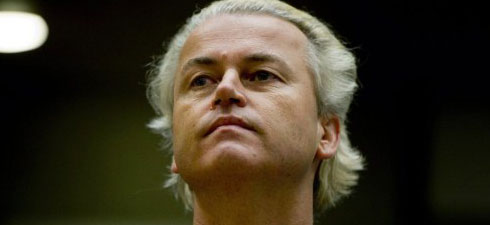In acquitting Geert Wilders the Dutch judge bucked a European trend. Despite years of intolerance towards any criticism of Islam, the Netherlands are honouring their tradition of ensuring a sanctuary for open debate. In western European countries over the past few years, things have been quite different: sworn opponents of Islam have been condemned for expressing their views.
Early in May in Denmark, for example, Lars Hedegaard, the ideologue of the Danish People's Party, was sentenced on appeal for saying that “girls in Muslim families get raped by their uncles, their cousins, or fathers,” and that “if a Muslim rapes a woman, he has the right. It’s part of his culture.”
On 15 February in Vienna, Elisabeth Wolff-Sabaditsch was fined for calling Muhammad, the founder of Islam, a “paedophile”. According to the Austrian court, Mohammad’s marriage to Aisha, who was nine years old at the time, could not be equated with paedophilia, because that would be “disparaging” to the “religious doctrines” of Islam, especially since the marriage continued after Aisha turned 18.
Comparable verdicts for comments critical of Islam were also handed down in France, Belgium and England. Jean-Marie Le Pen was indicted for saying: “The day when we have not five million but 25 million Muslims in France is the day they will be in charge. And the French will hug the walls and scuttle down the street with their eyes on the ground.” Mark Anthony Norwood had to remove from her window a poster that read “Islam out of Britain”. And Belgium's Daniel Feret, declared ineligible to stand for public election for ten years, was ordered to perform community service in the field of integration. He had called for the “repatriation” of immigrants who he said were “criminals” and demanded that social benefits be given only to Belgians and “Europeans”. When passing down these judgments the European Court of Human Rights in Strasbourg held that a “legitimate purpose” was being furthered and that the restriction of freedom of expression was, in this case, “necessary in a democratic society.”
Curious, because in none of these cases were there any calls for violence. According to the national courts, the statements overstepped the mark because they incited “hatred” or “discrimination” – concepts that can easily stretch and be used to silence unwelcome political views.
If for a long time it was hard to utter any criticism of Islam, it was because such criticisms were not compatible with multiculturalism. Yet now that leaders such as Cameron, Aznar, Sarkozy and Rutte have all subscribed to the surprising conclusion reached in 2010 by Angela Merkel, who said that “the multicultural society has completely failed,” criticism of Islam is once again allowed.
With the acquittal of Geert Wilders on Thursday, June 23, the Netherlands has become the first country in western Europe where legal authority has drawn explicit conclusions from the abandonment of multiculturalism. The Netherlands have lived up to their reputation of being a haven of tolerance for free speech.
Indeed, for a long time, the writings of countless critics of religion, from Spinoza to Voltaire, could only be published in Holland, while elsewhere in Europe they were banned. The repressive elite of that era who wanted to suppress criticism by resorting to the courts could only keep the ban in place up to the late 18th century. In the end, what had begun as a critical debate gained momentum and led to the French Revolution. A similar development could threaten the European elites of today.
Whether multiculturalism is a good idea or not, whether Islam is a political ideology or a peaceful religion and whether Muhammad was a paedophile or not, none of these ideas should be imposed or prohibited. This can only lead to a radicalisation of opinions. Only open debate can be permitted to decide these issues, and the parties that have been offended or injured can then try to persuade the critics of Islam of their alleged wrongs by force of argument.
If Wilders had been found guilty on Thursday, June 23 – even if only on a single statement – the authority of the judiciary as a whole would have been weakened yet again. Such a decision would have ushered in years of more legal jousting, which would have led to increased politicisation of the courtrooms. It would seem therefore that the judge proved conciliatory just in time. The question is: after this reasonable verdict, which European country will follow suit?
Was this article useful? If so we are delighted!
It is freely available because we believe that the right to free and independent information is essential for democracy. But this right is not guaranteed forever, and independence comes at a cost. We need your support in order to continue publishing independent, multilingual news for all Europeans.
Discover our subscription offers and their exclusive benefits and become a member of our community now!












